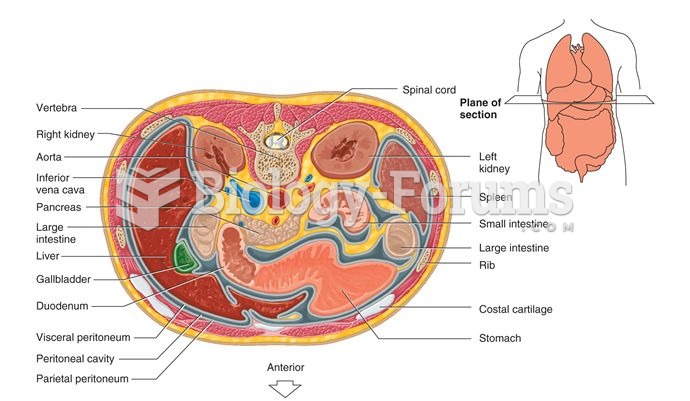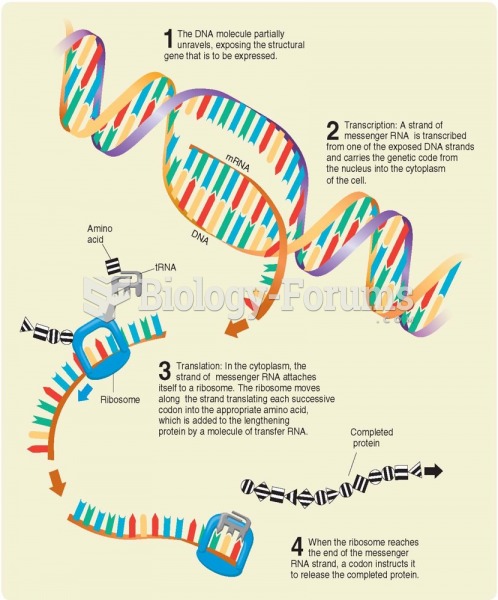|
|
|
Pope Sylvester II tried to introduce Arabic numbers into Europe between the years 999 and 1003, but their use did not catch on for a few more centuries, and Roman numerals continued to be the primary number system.
A good example of polar molecules can be understood when trying to make a cake. If water and oil are required, they will not mix together. If you put them into a measuring cup, the oil will rise to the top while the water remains on the bottom.
Though “Krazy Glue” or “Super Glue” has the ability to seal small wounds, it is not recommended for this purpose since it contains many substances that should not enter the body through the skin, and may be harmful.
Medication errors are three times higher among children and infants than with adults.
Increased intake of vitamin D has been shown to reduce fractures up to 25% in older people.
 Frederic Edwin Church conveyed the romantic sensibility in Twilight in the Wilderness (1860). The cl
Frederic Edwin Church conveyed the romantic sensibility in Twilight in the Wilderness (1860). The cl
 Police officers take aim during the riots that swept through the Watts section of Los Angeles in ...
Police officers take aim during the riots that swept through the Watts section of Los Angeles in ...
 Cross section of a typical port fuel-injection nozzle assembly. These injectors are serviced as an ...
Cross section of a typical port fuel-injection nozzle assembly. These injectors are serviced as an ...




